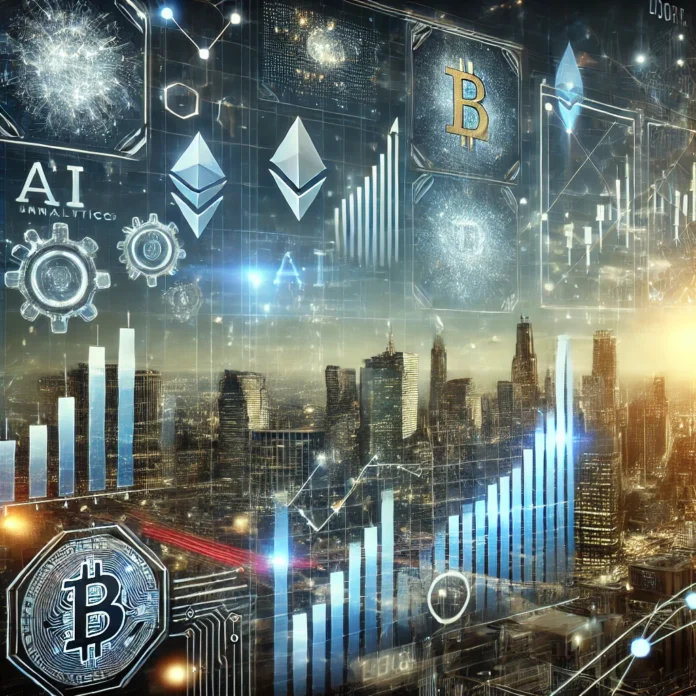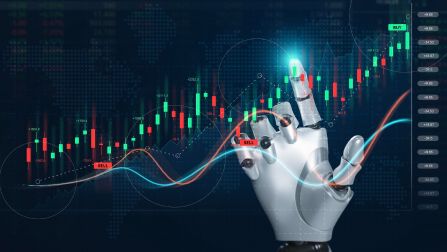The Future of Trading How Technology is Changing the Game
Introduction
The trading world has undergone a massive transformation over the past few decades, thanks to technological advancements. From the days of floor trading to high-frequency trading (HFT) and artificial intelligence (AI)-driven algorithms, technology has revolutionized financial markets. Today, traders no longer rely solely on human intuition—machine learning, big data, and blockchain are shaping the future of trading.
So, what does the future hold? How will technology further impact the way we buy and sell assets? In this article, we will explore key trends and innovations shaping the future of trading and what traders, investors, and financial institutions should expect in the coming years.

1. The Rise of AI and Machine Learning in Trading
Artificial intelligence (AI) and machine learning (ML) are playing an increasingly crucial role in trading. These technologies analyze massive amounts of data in real-time, making predictions and executing trades faster than any human trader ever could.
Key AI Trading Trends:
- Algorithmic Trading: AI-driven trading bots can execute trades within milliseconds based on historical data and market trends.
- Sentiment Analysis: AI scans news, social media, and financial reports to gauge market sentiment and predict price movements.
- Risk Management: AI models assess risks dynamically, adjusting trading strategies to minimize losses and maximize gains.
In the future, AI trading systems will become even more autonomous, requiring minimal human intervention. However, ethical concerns and regulatory challenges around AI-driven trading remain key areas of discussion.
2. Blockchain and Decentralized Trading
Blockchain technology has introduced a new era of transparency, security, and efficiency in financial transactions. Decentralized finance (DeFi) platforms are now offering alternatives to traditional trading systems, allowing users to trade assets without intermediaries like banks or brokers.
How Blockchain is Changing Trading:
- Decentralized Exchanges (DEXs): Platforms like Uniswap and PancakeSwap allow peer-to-peer trading without relying on centralized entities.
- Smart Contracts: Automated contracts execute trades based on pre-defined conditions, reducing fraud and errors.
- Tokenized Assets: Stocks, commodities, and real estate can now be represented as digital tokens on blockchain networks, making trading more accessible and efficient.
The future of trading may see increased integration between traditional financial markets and blockchain-based systems, creating a hybrid model that benefits from both security and decentralization.
3. The Evolution of High-Frequency Trading (HFT)
High-frequency trading (HFT) involves using complex algorithms to execute thousands of trades per second. While HFT has been around for years, advancements in computing power and network speeds are making it even more dominant.
Upcoming HFT Innovations:
- Quantum Computing: With the rise of quantum technology, HFT firms could analyze data exponentially faster, giving them an edge in predicting market movements.
- 5G and Edge Computing: Faster internet speeds will reduce latency in trade execution, making HFT even more efficient.
- AI-Driven HFT: Combining HFT with AI will further improve predictive capabilities and automated decision-making.
While HFT offers opportunities for big profits, it also raises concerns about market fairness and volatility. Regulators will likely introduce stricter guidelines to ensure transparency.
4. The Impact of Big Data on Trading
Data is the new gold in trading. The ability to process and analyze vast amounts of structured and unstructured data provides traders with a competitive edge.
Big Data Applications in Trading:
- Predictive Analytics: Historical price data, economic indicators, and real-time news help forecast market trends.
- Alternative Data Sources: Traders are now using satellite imagery, consumer sentiment, and even weather patterns to predict market movements.
- Enhanced Risk Management: Big data analytics help traders assess risks with greater accuracy, making informed decisions.
As computing power continues to grow, big data will become even more integral to trading strategies, offering deeper insights and faster decision-making.
5. Social Trading and the Rise of Retail Investors
Social media and online communities have changed the way people trade. Platforms like Robinhood, eToro, and TradingView have empowered retail traders, giving them access to markets that were once dominated by institutional investors.
Future Trends in Social Trading:
- Copy Trading: Investors can mirror the trades of successful traders using AI-driven platforms.
- Community-Driven Market Movements: Reddit forums (e.g., r/WallStreetBets) and Twitter have already influenced stock prices (GameStop, AMC). This trend is likely to continue.
- Gamification of Trading: Apps will introduce more interactive and user-friendly features, making trading more accessible to beginners.
As retail trading grows, regulators will need to find a balance between financial freedom and protecting inexperienced traders from high-risk speculation.

6. The Future of Cryptocurrency Trading
Cryptocurrency trading has seen explosive growth, and its future looks promising. With increasing institutional adoption and regulatory frameworks taking shape, crypto is becoming a more mainstream asset class.
Upcoming Developments in Crypto Trading:
- Institutional Involvement: More hedge funds and banks are entering the crypto space, bringing legitimacy and liquidity.
- Stablecoins & Central Bank Digital Currencies (CBDCs): Government-backed digital currencies may revolutionize global payments and trading.
- Regulated Crypto Exchanges: Governments are working on laws to regulate crypto markets, making them safer for traders.
The biggest challenge for crypto trading remains volatility, but as adoption increases, the market may stabilize over time.
7. The Role of Regulations in Future Trading
As trading technology advances, regulators will need to keep up with new challenges, such as:
- AI Transparency: Ensuring AI trading algorithms operate fairly and ethically.
- Crypto Regulations: Creating a legal framework for digital asset trading.
- Market Manipulation Prevention: Addressing issues like “pump and dump” schemes on social media.
Governments and financial authorities worldwide will play a crucial role in shaping the future of trading by enforcing policies that balance innovation with investor protection.
Conclusion
The future of trading is being shaped by cutting-edge technologies like AI, blockchain, and big data. As automation and decentralized finance grow, traders will have access to more efficient and transparent markets. However, with these innovations come challenges—such as ethical concerns, regulatory oversight, and cybersecurity risks.
For traders and investors, staying ahead means embracing new tools and understanding emerging market trends. The landscape of trading is evolving rapidly, and those who adapt will be best positioned for success in the digital economy.



